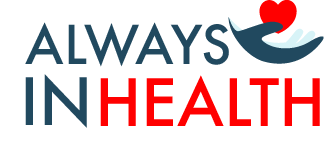It’s that time of year again. People are placing their shutters up, the city is trimming trees bare, and tourists are scrambling to the gas station to buy a year’s worth of gas. That’s right, it’s hurricane season!
Although we can hope for a mild summer, it’s important to still prepare for a harsh hurricane season. This is especially true if you are currently caregiving for an older loved one, as senior citizens tend to be the most vulnerable during disasters. In fact, according to the Center for Disaster Philanthropy, “disasters disproportionately affect older individuals.”
So, if you are a caregiver for an elderly loved one, here’s some easy ways to prepare for the hurricane season!
Stock up on Sustenance
A great way to prepare for a hurricane is to make sure that your loved one is well stocked with food and water.
Hurricane season falls directly during the hot months of summer, when seniors are most susceptible to heat stroke and other hyperthermic conditions. Thus, you’ll want to ensure that they have a good amount of water to help regulate body temperature! For purchasing water, a good rule of thumb is to have a gallon per day.
For food, you should purchase non-perishable items that are beneficial to seniors and a home health aide. Many non-perishable items, especially canned foods, tend to rely on preservative sugars and excess salt. These additives can be detrimental to an aging body, especially one that is sensitive to high salinity. Thus, it helps to choose canned goods that are low sodium!
Organize Medications
In the event of a hurricane, you want your loved one to have easy access to any regular vitamins and necessary medications. All of these items should be in one easy-to-reach place; the goal is to ensure your loved one can easily find and access this area. Place a small flashlight near the space, just to ensure clear visibility in case of a power outage.
Compile Medical Records
For the hurricane preparedness of elderly individuals, it’s important to have all medical documents in one accessible place. These documents should have a compilation of the contact information for everyone in the caregiver network: this includes home health care providers, primary care doctors, and family members who aid in the day-to-day care of your loved one.
The paperwork should also include any insurance cards, pertinent health care strategies, and also copies of regular prescriptions.
